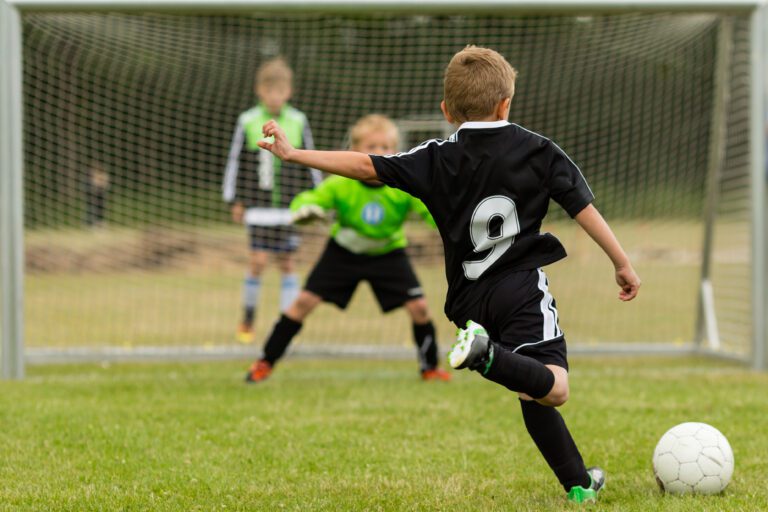What goes into making a great athlete? There are many factors that make an elite athlete. Hard work, dedicated parents and coaches, teammates, and motivation are a few of these attributes. In this article we are going to talk about what I believe is the single most important attribute in any sport that will raise the level of play. This attribute is confidence.
Before we get started I want to draw a distinction between confidence and cockiness. Confidence lets the outcome on the field or court do the talking while a cocky athlete has to let other people know how good he or she is. As a coach or parent of a young athlete you have to teach them how to fail and lose well. Confidence teaches a young athlete how to be humble, and in my years of playing and coaching from youth to college nothing will humble an athlete more than losing. Below are two ways to help your young athlete develop confidence that will allow them to thrive while playing a sport and developing as a leader.
Let Go of Fear
“If you don’t have the confidence, you’ll always find a way to not win.” Carl Lewis, nine-time Olympic gold medal winner
Confidence can impact a number of things in a competitive environment. We have seen professional basketball players not be able to make a free throw, pitchers in baseball not able to throw a strike, and kickers in football not being able to convert on extra points or field goals. It’s not that they forgot to do the activity that they are paid to do or that they don’t work hard. In most cases it is the fear of failure that impacts their performance. Athletes often fear the negative consequences of their performance. Many of these things are out of their control.
As a coach or parent the first step is to identify the beliefs, attitudes, and expectations that cause your athletes to control every little detail in competition that will lead to fear of failure. I challenge you to find an athlete at any level that played an absolutely perfect game, not one mistake throughout the game – you won’t find one. For any age athlete, when you set the goal of perfection you are setting a bar that no one can reach. When the bar is perfection, athletes will be afraid to take chances such as shooting an open three because they are scared to miss the shot.
Positive Self-Talk
“Whether you think you can, or you think you can’t – you’re right,” – Henry Ford
Self-talk serves as the basis for almost every aspect in our lives: our beliefs, our outlook, our confidence, how we interact with others, and so much more.
Now don’t confuse positive self-talk with ignoring negative situations. During a competition you need to understand what went wrong but tell yourself that you can move on from this. Something I teach all of my athletes is a two clap method. The first clap is acknowledging the negative outcome, whether it be a missed tackle or a bad shot. The second clap is saying “move on” there is nothing you can do to fix a bad shot or miss throw.
Positive self-talk isn’t saying you won’t make mistakes, positive self-talk is telling yourself that mistakes are okay and you don’t need to make up for the last mistake. Mistakes are a part of games, in most cases it’s not the mistake that will lose the game, it’s the negative reaction to the mistake that compounds throughout the game.
—
Coaches need quotes to inspire your athletes? Check out the two blogs below that has over 40 quotes that will give confidence and inspire your team:
CoachUp is the safest and easiest way to find a coach for personalized training. With our 100% money-back guarantee and vetted coaches, anyone can achieve their full athletic potential. Find your perfect coach today and become the athlete you want to be!
How useful was this post?
Click on a star to rate it!
Average rating 4.5 / 5. Vote count: 14
No votes so far! Be the first to rate this post.





One Response
Nicely done/written coach.